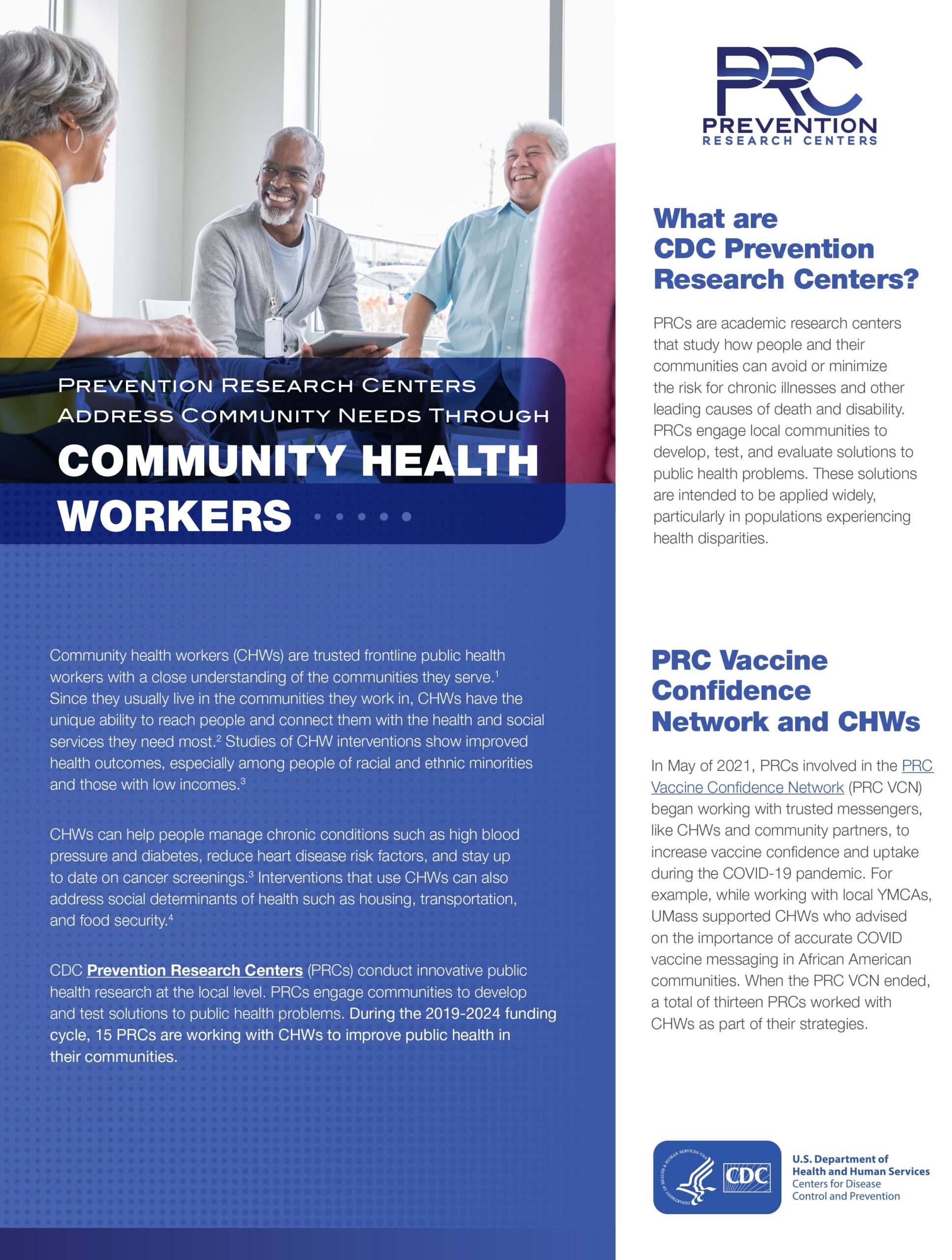


Improving Health in Low Income Communities: Virtual Delivery of a Diabetes Prevention Program Facilitated by Community Care Coordination
Our 5-year core research project (2019-2024) is assessing the feasibility and pathways for implementing a virtually-delivered Diabetes Prevention Program (v-DPP) to adults with limited economic resources who are at risk for type 2 diabetes, and who are residents of New Haven or the Lower Naugatuck Valley in CT.
The virtual program delivery will be facilitated locally by community health workers (CHWs) who will provide care coordination to help identify and address barriers to successful program participation.
We have selected a v-DPP platform developed by incentaHEALTH as the program for use in our study. It will be offered to study participants using the customized title of “Healthy Me: A Lifestyle Program from the Yale-Griffin Prevention Research Center.”
We expect to demonstrate that this year-long program will lead to improved biometrics and behavioral and cardio-metabolic outcomes among the adults who enroll in this study and participate in the program.
As part of our process evaluation, we are applying Program Impact Pathways (PIP) and Reach Effectiveness, Adoption, Implementation, and Maintenance (RE-AIM) frameworks to assess the implementation processes, including program delivery bottlenecks, and outcomes.
Our organizational partners on this project include the Community Alliance for Research and Engagement (CARE), Elm City Communities, Griffin Community Outreach Programs and Valley Parish Nurse Program, and incentaHEALTH.

Project Purpose and Goal
The risk of diabetes is significantly higher among people with limited economic resources. Lifestyle interventions that focus on healthful eating and physical activity can often prevent prediabetes from progressing to type 2 diabetes and its complications.
The Diabetes Prevention Program (DPP) is a year-long lifestyle intervention with proven success. It is typically offered onsite in small-group settings. However, people with limited economic resources often face barriers to onsite engagement in the DPP. Examples of barriers include irregular work schedules, or limited access to transportation, childcare, quality healthcare, affordable healthful foods, or safe places to be physically active.
Offering a virtual version of the DPP (v-DPP) to people who face barriers to the onsite DPP could improve program participation, engagement, and outcomes. Combining the v-DPP with personally tailored guidance and care coordination from community health workers (CHWs) could help address many barriers to successful participation in the DPP.
The goal of this project is to assess the feasibility of and pathways for implementation of a virtually-delivered DPP (v-DPP) supported by community-based care coordination involving CHWs. Ultimately, we hope to demonstrate improvements in diet quality, physical activity levels, blood sugar, body weight status, and blood pressure among our population of focus, thereby reducing their risk for type 2 diabetes.
Project Timeline
| FORMATIVE RESEARCHSelect a v-DPP platform for program deliveryReview literature on relevant topicsInterview key informants and residentsFinalize study assessment instruments | ||
| RECRUITMENT & INTERVENTIONRecruit and enroll pilot study participantsPilot-test the v-DPP programDevelop/Revise PIP framework | ||
| INTERVENTION & PRELIMINARY ANALYSESRecruit and enroll participants for year-long v-DPPStart intervention & assessmentsContinue intervention and assessmentsConduct preliminary data analysesFurther revise the PIP framework |   Virtual Diabetes Prevention Program Recruitment Overview | |
| FINAL ANALYSES & DISSEMINATIONConduct final data analysesDevelop dissemination toolkitShare results and toolkit with audiences |   PRCs Address Community Needs Through Community Health Workers |
Year 1 Activities (2019-2020)
| Selection of a virtual Diabetes Prevention Program (v-DPP) platformAfter exploratory meetings with companies that use virtual platforms to deliver the DPP, we selected incentaHEALTH as our v-DPP provider and research partner. | |
| Review of published literature on relevant research topicsWe conducted a realist review to determine how, why, and in what circumstances v-DPPs can improve diabetes risk factors among adults with limited economic resources. | |
| Interviews with key informants and residents in New Haven, Ansonia, and DerbyWe interviewed people who work with adults with limited resources to gain their insights on offering the v-DPP facilitated by care coordination from community health workers or community health nurses.We interviewed residents who represent our population of focus to elicit their opinions and perceived barriers regarding healthful eating, physical activity, and the use of digital technology. | |
| Final selection of study assessment instrumentsWe selected assessment tools to measure pre-post changes in behavioral and cardio-metabolic outcomes among the adults who enroll and participate in the program. |
Year 2 Activities (2020-2021)
| Pilot study of the v-DPP programWe offered a pilot study of the first 4 weeks of the vDPP to 11 residents of New Haven or the Lower Naugatuck Valley. CHWs helped address social determinants or other barriers to healthy lifestyles. Participants shared their experiences with the program during a focus group. | |
| Year-long v-DPP InterventionThe pilot study helped us to identify and address recruitment, program and operational issues prior to offering the full year-long intervention to other residents. |
Year 3 Activities (2021-2022)
| Year-long v-DPP InterventionIn the fall of 2021, we recruited, enrolled, and collected initial data from the first cohort of participants who started the full year-long intervention. |
Primary Contacts
Rafael Pérez-Escamilla, PhD
PRC Principal Investigator
rafael.perez-escamilla@yale.edu
Kathleen O’Connor Duffany, PhD
PRC Co-Director
kathleen.oconnorduffany@yale.edu
Beth Patton Comerford, MS
PRC Co-Director
beth.comerford@yalegriffinprc.org
Alycia Santilli, MSW
Director, Community Alliance for Research and Engagement (CARE)
santillia1@southernct.edu
